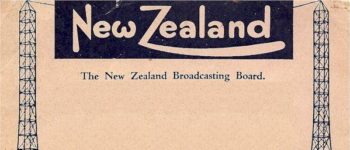1931: New Zealand Broadcasting Board
February 1, 2021
By AHNZ
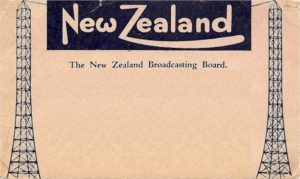 The State thrives on giving itself credit for things it was barely involved with or actively impeded. As with telegraph, telephone, and television, private and free people discovered and developed radio technology in New Zealand. The Government simply muscled in to expropriate and control what free Kiwis had already set up. This is the story of the New Zealand Broadcasting Board.
The State thrives on giving itself credit for things it was barely involved with or actively impeded. As with telegraph, telephone, and television, private and free people discovered and developed radio technology in New Zealand. The Government simply muscled in to expropriate and control what free Kiwis had already set up. This is the story of the New Zealand Broadcasting Board.
Fascism in New Zealand radio (to use the technical term) had been established with the Wireless Telegraphy Act of 1903. New Zealand’s Government was the first in the world to exercise a complete state monopoly, denying citizens of their right to transmit or receive radio messages. Because, remember, to suppress free speech is a double wrong in violating the rights of the listener as well as those of the broadcaster.
“The Government intend to acquire a monopoly of this system, just in the same way as has been done in regard to telegraph lines and telephones” – Attorney-General speaking to the Legislative Council about radio (c.1903)
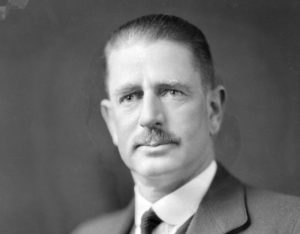 Government didn’t really know what it had, it just instinctively sought to control and tax anything that moved. A token licencing fee for owning a radio was set at 5 shillings. Over time it became valuable to the government to extend protectionism over the newspapers as the mainstream source of current affairs information/news. This was done by banning such content from the airwaves using Regulation 79 (1923.) The Fourth Estate was all print media at this time and their gratitude, fear, and favour of government could be ensured by the pact to keep radio virtually stillborn in this country the same way Kiwi television would also be delayed for years behind the rest of the world.
Government didn’t really know what it had, it just instinctively sought to control and tax anything that moved. A token licencing fee for owning a radio was set at 5 shillings. Over time it became valuable to the government to extend protectionism over the newspapers as the mainstream source of current affairs information/news. This was done by banning such content from the airwaves using Regulation 79 (1923.) The Fourth Estate was all print media at this time and their gratitude, fear, and favour of government could be ensured by the pact to keep radio virtually stillborn in this country the same way Kiwi television would also be delayed for years behind the rest of the world.
Regulation 79 was not seriously resisted therefore government could go further toward control. In 1924 William Massey’s Government had its Minister, Gordon Coates (image right,) announce that the token licencing fee was going up 600%. The pretence was that official people had found radio programme content to be poor so the new tax would be spent on improved quality. (You betchya.)
Radio Broadcasting Company of New Zealand
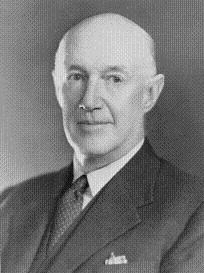 By 1925 Gordon Coates was now Prime Minister but the New Zealand broadcasters were still refusing to federate. The slush fund of the licencing fee was bait, government money for the taking, all they needed to do was sell out to the government by becoming a political quango. Our broadcasters held out, preferring liberty and independence to Coates’ dog collar even though it came with diamond studs and a bowl full of stolen taxpayer’s money. The Government wasn’t getting its way just yet.
By 1925 Gordon Coates was now Prime Minister but the New Zealand broadcasters were still refusing to federate. The slush fund of the licencing fee was bait, government money for the taking, all they needed to do was sell out to the government by becoming a political quango. Our broadcasters held out, preferring liberty and independence to Coates’ dog collar even though it came with diamond studs and a bowl full of stolen taxpayer’s money. The Government wasn’t getting its way just yet.
William Goodfellow (image right,) a highly competent businessman and milk magnate, was prevailed upon to storm the gates of independent radio. He was not a broadcaster but wished to be, seeking to help improve communications within his Waikato milk network. Coates’ people gave Goodfellow the go-ahead for this, finally, on the basis that he do so in the form of that association that the government had been dangling to the industry like a hook for the better part of two years. And, so, it was formed, the The Radio Broadcasting Company of New Zealand (RBC.)
“Three Rings for the Elven-kings under the sky,
Seven for the Dwarf-lords in their halls of stone,
Nine for Mortal Men doomed to die,
One for the Dark Lord on his dark throne
In the Land of Mordor where the Shadows lie.
One Ring to rule them all, One Ring to find them,
One Ring to bring them all, and in the darkness bind them,
In the Land of Mordor where the Shadows lie.” – Ring Verse, Lord of the Rings“Goodfellow was reluctant at first. The initial contract was for five years with no guarantee of renewal and there seemed nothing to stop the Government taking over the organisation once all the hard work had been done. Parr provided an assurance in writing, that, provided programmes and services were satisfactory, a renewal would follow.”- p157, Keith (1984)
Goodfellow was not so green as to think his RBC was not being used to nationalise the radio industry. Coates couldn’t turn any existing broadcasters so he was setting up and funding a new one to do it. Perhaps Goodfellow thought he could resist, perhaps he really wanted Radio Milk, perhaps pressure was placed elsewhere on his interests to have him comply. I think he would have known that capitalists, such as himself, create wealth not governments. The Government doesn’t know how to build anything, they need someone else to do that so they can then take it off him. Goodfellow’s only assurance against this was an assurance from the Postmaster-General, James Parr, that the RBC would be renewed after its first 5 year term.
The New Zealand Broadcasting Board
Much as Governor William Hobson and his cronies set up Auckland’s first newspaper, Coate’s Ministry set up Auckland’s radio station, 1YA, stacked with their own people breathing down Goodfellow’s neck. The government bank-rolled the RBC and bought up 4 pre-existing private radio stations (1YA, 2YA, 3YA, and 4YA) for Goodfellow to develop. Naturally, Parr and his promise were long gone by November 1931 when the RBC was taken over by The State by Act of Parliament. (After all, the ‘Dark Lord’ Government doesn’t distribute a ‘ring of power’ except to then activate the over-ride function of said ring once it has been put to successful use¹.)
“Nominally a private company, the RBC was heavily state-influenced. Its main revenue came from a compulsory annual radio licence fee…The company board was stacked with government officials and representatives.”- The Encyclopedia of New Zealand
“…the colonial administration…made up at least half the company shareholders. By August 1841, the majority of the trustees who managed the newspaper were also government officials…..the trustees closed the newspaper down, dissolved the company, and sold the printing plant to the government.” – Papers Past; 1842: State vs Media, AHNZ
“Broadcasting is a public utility, and on that score…should be a monopoly of the people…It is created by the people, and therefore belongs to the people.”- J.B Donald, politician and deviser of the new government plan; Ref. Keith (1984)
The entire RBC was taken over, all assets acquired by the government for the new New Zealand Broadcasting Board (NZBB.) What Goodfellow had built, the Government seized. It then proceeded to force out or buy-up all the private competition by driving them to the wall.
In 1935, empowered by the Broadcasting Amendment Act, the NZBB was given the ‘responsibility’ of supervising the radio shows of their private competitors’ stations. The political cover for this fascist extension (to use the technical term) was provided by a Coverage Commission. In other words, a government finding had decided that radio reception wasn’t satisfactory in the Government’s competition so it was, logically?, a mater of public good that their content be policed by big government.
“As a result of the report of the Coverage Commission, the Board decided to give financial aid…But a price had to be paid for this aid, and the Broadcasting Amendment Act 1934–35 charged the Board with the responsibility of supervising the programmes broadcast by private broadcasting stations. Unification of the whole system was the obvious aim.”- McLintock (1966)
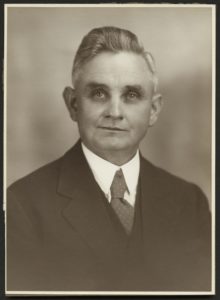 The free stations (so much as they were still free at this point..) continued to run for a few more years before being assimilated or destroyed by Government radio entirely.
The free stations (so much as they were still free at this point..) continued to run for a few more years before being assimilated or destroyed by Government radio entirely.
As so often in New Zealand history, one State regime creates a slippery slope and the next turns it into a slip’n slide. When Labour 1.0 came to power in 1935 the precedent for Big Brother radio had been set and this Government pulled out all the stops in taking over the airwaves. “Radio will soon be as necessary for the mind of an active citizen as water is for the human body and will be laid on to every home in a similar way,” said new Prime Minister M.J. Savage upon opening a yet more powerful 2YA transmitter for Wellington. Independent radio media would soon fall like dominos, only to be pushed back in the distant future with the advent of Radio Hauraki in 1966.
—
1 See also 1957: Only That Your Words Will Live; AHNZ
Note: Wireless Telegraphy Act, 23 September 1903
Ref. 1842: State vs Media
Ref. 1930s: Whose News?
Ref. 1966: Radio Hauraki
Ref. NZ Yesterdays, Hamish Keith (1984)
Ref. An Encyclopaedia of New Zealand, McLintock (1966); The Encylopaedia of New Zealand (2021)
Image ref NZBB, mod image from Radio Heritage Foundation
Image ref. Goodfellow; Sir George Grey Special Collections, Auckland Libraries
 Like Comment Share
Like Comment Share

